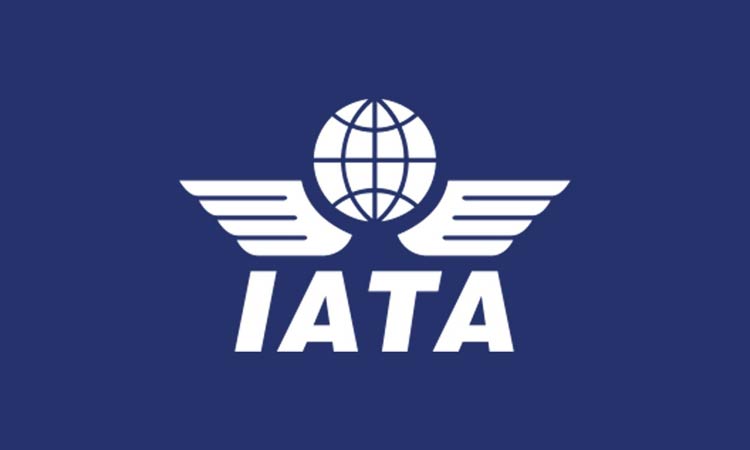Bringing a loved one home after their passing overseas is always a painful and traumatic experience for family and friends. Repatriation is the process that involves transporting the person’s remains to their home country or chosen place. It can be quite challenging, especially if it is not planned. The mix of grief, uncertainty and distance can make the loss feel more overwhelming. This article will discuss the Repatriation of dead body from Dubai or UAE to any location worldwide.
Grief and the Challenges of Repatriating a Loved One
Grief is the natural emotional response to losing someone and repatriation of dead body can intensify the feelings. Seeing the physical body of a loved one can stir up memories and sadness but provide some closure for those grieving. The uncertainty of not knowing where their loved ones remains are located can be distressing especially if other family members are still abroad. Depending on circumstances repatriation of dead body can take a number of weeks, making feelings of loss last longer and possibly worsening.
Coping with Guilt When a Loved One Dies Overseas
Navigating feelings of guilt after the death of a loved one is another difficulty to handle during this difficult time. There might be a regret for not being there to offer support or prevent their death. These feelings can be intensified during the body repatriation process. It is important to understand that their death is not your fault, and accepting this truth is an important step in the grieving process.
Stress and Anxiety
Managing the logistics of human remains can be stressful and overwhelming, especially with the involvement of government procedures, paperwork, and transportation. While efforts are made to ease the procedures, the necessary can feel overwhelming during such stressful times. In case of delays, family members may also worry about the condition of the body.
Financial Strain
Repatriating a body is an expensive process and it can further increase stress and anxiety in an already tough situation. The high cost of body repatriation is a sad but real part of saying goodbye. An unexpected bill during a time of extreme pain can be difficult to handle.
Getting through this emotional journey demands support and empathy. It’s crucial to seek help from family, friends, support groups or mental health professionals to cope with the emotional impact of the loss.
Understanding the Repatriation Process
What is Repatriation?
Body repatriation refers to the process of returning a deceased individual to their home country or country of citizenship after they have passed away. Repatriation of human remains is a complex process that involves multiple steps and complete compliance with local and international regulations.
This guide will walk you through the essential stages like paperwork, embalming procedures, airline guidelines and cargo repatriation protocols ensuring that everything is managed thoughtfully and respectfully.

Required Documentation (Repatriation of Dead Body from Dubai)
The documents required for repatriation vary depending on the destination country. Generally, you will need:
- The passport of the deceased.
- The original death certificate, is often required in both English and the local language.
- A No Objection Certificate from the embassy or consulate.
- An embalming certificate if applicable.
- Confirmation of booking with an airline for the transportation of the body.
- A letter from the deceased’s sponsor or next of kin detailing the death and their wishes regarding the repatriation or local burial/cremation.
- Additional documents may include a police report and a forensic report with legal translation.
Check out our Funeral Documentation & Paperwork Services
Embalming
Embalming contributes in preserving the body for transportation over long distances. The process must comply with the health regulations of the home country and destination. In some cases, like deaths involving diseases like COVID-19, specific protocols must be followed where embalming may not be recommended or done under strict medical supervision.
Airline Regulations
Transporting remains by air requires compliance with airline and international transport regulations. The body must be properly packaged, typically in a hermetically sealed casket. All necessary documents must be presented. Airlines may have their own additional requirements like:
- Advance confirmation for unaccompanied coffins.
- A confirmed ticket for any accompanying passenger.
- Specific packaging requirements for cremated remains, which may include the need for an urn and accompanying cremation certificate.
Repatriation of dead body by Cargo
When transporting human remains via cargo, it is important to coordinate with multiple parties like funeral homes, cargo handlers, and airlines. The process involves:
- Booking arrangements with a freight forwarding company or an airline.
- Ensuring packaging of the body according to the guidelines.
- Attaching the correct labels and ensuring all documentation, like the Air Waybill is completed correctly and accompanies the shipment.
The International Air Transport Association (IATA) offers resources like the Compassionate Transportation Manual to assist funeral directors and families. This ensures that every step is followed correctly to avoid any complications.

Managing the repatriation of a loved one can be incredibly challenging. However, having an understanding of these aspects can help reduce stress by ensuring that all necessary procedures are followed for a seamless process.
Required Support and Resources
The process of repatriation involves several key support systems and resources. Understanding these supports can help you in navigating the complexities of bringing your loved one home with respect.
UAE Authorities
In the United Arab Emirates (UAE) the repatriation of remains is a process that involves various governmental departments to ensure that the deceased is treated with dignity and respect. The Ministry of Health oversees medical and public health matters and ensures that all essential medical certifications and clearances are obtained. The police play an important role in procedures like issuing death certificates and clearance. Other relevant government entities work closely with consulates to manage logistics and ensure local and international regulations compliance. Together these entities work harmoniously to facilitate the body repatriation process compassionately and efficiently.
Home Country Embassy/Consulate
The embassy or consulate of the home country of the deceased plays an important role in repatriation. It helps in sending the body back and also provides support to grieving families. They assist in obtaining necessary documentation, like the deceased’s passport and death certificate, and help in coordinating with local authorities and funeral homes. Additionally, they offer guidance on logistical aspects to ensure compliance with both UAE laws and requirements from the home country. Consular staff offer emotional support and can help families connect with local resources, like grief counseling.
Funeral Service Providers
Funeral service providers offer assistance in preparing the remains for body repatriation, obtaining necessary documents, and coordinating with funeral directors in the destination country. Coppola Funeral Services, a trusted provider of Funeral Services in Dubai, has extensive experience and a global network to efficiently and respectfully manage repatriations.

Financial Considerations
The cost of sending the body back home can be very expensive. The cost varies based on the distance and mode of transportation. It’s important to check if the deceased had travel insurance that covers repatriation expenses. This involves reaching out to banks for account information and ensuring all claims, with insurance companies are made using the death certificate.
Successfully navigating the repatriation process requires coordination across multiple entities. You will need help from local authorities, embassies, funeral homes, and you will also need to manage the costs involved. By working with all these groups, you can make sure the process is handled with care and respect for your loved one.
Additional Considerations
Religious and Cultural Practices
The religious and cultural practices may influence the repatriation process. Different religions have their rituals surrounding death and mourning. For instance, in Christianity, it is common to bury the deceased in the cemetery while Islamic customs require the body to be washed and buried facing Mecca. Hindu rituals may include the washing of the body and placing rice, sesame seeds, or other offerings in the mouth and coins in the hands before cremation.
Read: All About Cremation: A Comprehensive Guide to the Process
When dealing with the repatriation process, it is important to consult with the religious leaders and ensure that all practices are respected. These may require specific types of caskets or urns and organizing rituals according to their beliefs. Understanding these details not only honors the deceased but also provides comfort to the grieving family by meeting their cultural and spiritual needs.
Travel Arrangements for Family Members
Arranging travel for family members who want to accompany their loved one home or attend an overseas funeral is another important aspect of repatriation. It’s recommended to reach out to travel agencies or repatriation services that can help in making arrangements. Some holiday providers offer support through welfare teams that can handle logistics allowing the family to travel without added stress during this period.
Support During Bereavement
Losing a loved one is incredibly tough. The support you receive during this time can significantly affect the grieving process. It’s crucial to have access to help and clear communication, from professionals who understand what you’re going through.
Support organizations offer invaluable assistance by providing advice, financial aid, and general guidance to families dealing with a death in another country. These organizations are usually funded through donations and host events to ease the emotional burdens that families face in difficult times. Through their services, families get support in dealing with the challenges and expenses of bringing back a loved one’s remains.
Conclusion
In this exploration of repatriation, we have delved into the emotional, logistical, and financial components involved in the process of bringing a loved one home after death abroad. There’s a lot to take care of, like special papers and following local customs. But this article can help you understand what to do and where to find support. By being kind to yourself, planning ahead a little, and getting help from others, you can get through this difficult time.
Check out Best Cremation Services


